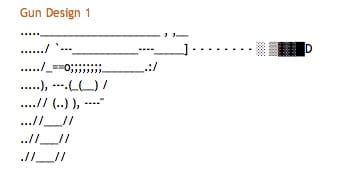Facebook has always been one of those annoyances where boring stories about daily lives become narcissistic headlines in a self-absorbed world. Throw in the dark forces of Farmville and there are many reasons to steer clear of the Facebook culture. But then the fabric of several oppressive Middle East autocracies (some were masqueraded as functional democracies) began to unravel in a big hurry. The weapon of choice for the new breed of counter-revolutionaries was Facebook and its little brother Twitter. The social networks worked with You Tube to deliver a knockout punch to a host of heavy-handed strongmen who held control by force and fear . . .
The fact that so many Middle East countries are in a major state of flux is a major surprise to many observers, including several recently deposed former leaders/thugs currently in hiding. Few of the revolutionaries were packing weapons during the uprisings and that is a major shift in strategy from historic revolutions like the War of Independence in the United States.
The need for a giant shift toward legitimate democratic governments was obvious for the entire Middle East region. Long before the internet made multi-billionaires out of geeks and nerds, there were opportunities for fabulous wealth in dictatorships.
The recipe was actually quite simple: assume control of an under-developed (and under-democratized) country and keep control by brutality and fear. An ambitious dictator would spare no expenses on his torture and media control methods to keep everybody on message.
The message was a basic “my way or the highway” program that provided a very bumpy road for vocal dissidents. The system worked fairly well until the advent of social networks. Suddenly a young generation had access to the other side of the story in their own nations, and they didn’t like the plotline.
Egypt was the most powerful example of the new weapon of choice. The events of the past few weeks had their roots in a social movement called “April 6”. It was a social network designed in 2008 to drum up support for a labor strike in a country where strikes were about as popular as a blizzard at an outdoor wedding in June.
The April 6 Movement had mobilized a large number of young disaffected Egyptians that possessed keyboards and smart phones—instead of AK-47s. The ultimate ouster of Egyptian President Hosni Mubarak was a result of a concerted effort by a wired generation.
Yes, there has been plenty of bloodshed in Libya and elsewhere. And more that we don’t know about. But the body count in these revolutions has been relatively small by comparison to old school uprisings where bullets are generously exchanged by both sides.
Equally important, news of the oppressive regimes’ intimidation and assassination has reached the rest of the world at the speed of light. For example, in this morning’s New York Times . . .
After a televised speech by Colonel Qaddafi, in which he vowed to track down and kill protesters — whom he called cockroaches — “house by house,” thousands of his supporters had converged in the city’s central Green Square on Tuesday night, wearing green bandannas and brandishing large machetes.
What’s the bet that protestors are using the ‘net or cell phones to keep track of Qaddafi’s killers? Info wars: mass media TV vs. personal communications. Lesson learned: evil loves the dark. The Internet—even otherwise banal and vapid Facebook, Twitter, YouTube and like—are the light.
Some say these electronic methods are “non-violent.” Yes and no. By amassing such a demonstrably large audience, they create an implied threat of violence. The “flash mobs” represent the possibility of violent over-throw. And the difficulty of defeating an entire population of motivated protestors all at once.
Like any war, when one side gains a distinct advantage, the other side quickly creates an effective counter. One must assume that dictators in unaffected countries will learn a valuable lesson in social networks and their application to the growing field of civil disobedience; perhaps shutting them off before the protests begin.
Counter-intelligence is online now; including “fake” Facebook members. The U.S. has developed ways to “insert” computer and cell-phone coverage into foreign countries.
The next big question in the Middle East will be the political direction of the newly dictator-free countries in the region. The emergence of the Muslim Brotherhood as a political force in the new Egypt is a virtual certainty. How they handle their new role is a big question mark.
Will they be a part of a moderate political movement or will they renew hostilities with Israel? The wrong answer might mean a conventional war with real bullets in a new age of cyber-revolution.





Nice article Jim. One of the important things to take away from Egypt is that the peaceful protests work… when someone keeps everyone playing nice. In Egypt, it was the military. From what I understand, they are very respected in Egypt as an institution and the fact that they did not support Mubarak was a major gain both psychologically and physically.
Very well written. Thanks for the brain food.
Jim, you had me with you until your last two paragraphs. Everything I’ve read about the Muslim Brotherhood tells me that they are in bed with the most radicalized elements of Islam in Iran, and see the world as one big opportunity to create a worldwide Muslim Caliphate. Their history speaks for itself. The statements of their titular head in Egypt (pre-ouster of Mubarak) indicates that “tolerance” and “peaceful co-existence” are not high on his to-do list. I think it’s the height of naiveté to presume or assume that these guys have anything but jihad on their minds, once they take over the country. And remember, Egypt is well-armed (with F-16s, Abrams tanks, and Stinger misiles) thanks to our largesse.
I thought the MB was Sunni.
Yes, the MB in Egypt are Sunnis and the majority of Iranians are Shiites. However, both Sunni and Shia (theoretically) wish to restore the Caliphate, they differ only in who should be Caliph.
Having said this, I suspect the average guy on the street is far more interested in just making a living and feeding his family.
Exceptional article.
I’ve learned to distrust anything that happens in that little corner of the world. However, it does seem that at least some Arabs have finally discovered that there are different kinds of force. Does this mean that the Middle East is ready to ditch the sixteenth century and move into the twenty-first? I remain doubtful.
The Internet is the Gutenberg Press of the 21st century. It’s going to take the power elite of the world a good while to put that genie back in the bottle.
Sad to say, they eventually will.
Comments are closed.